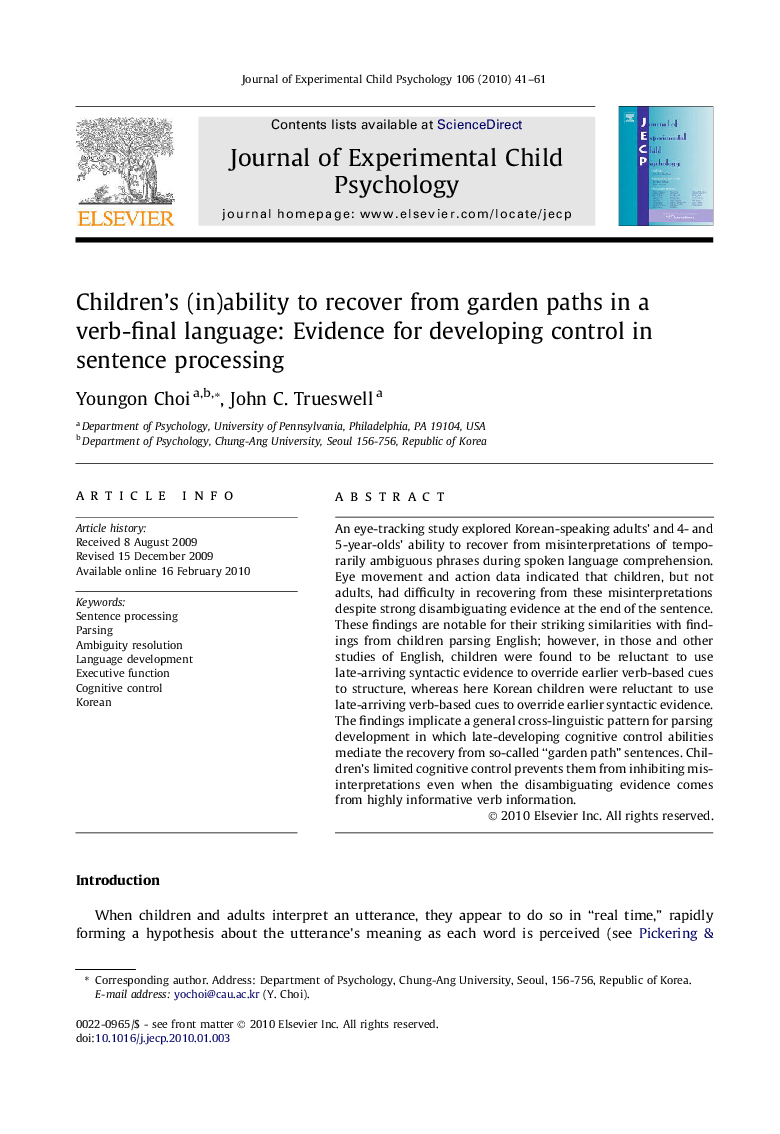| Article ID | Journal | Published Year | Pages | File Type |
|---|---|---|---|---|
| 918540 | Journal of Experimental Child Psychology | 2010 | 21 Pages |
An eye-tracking study explored Korean-speaking adults’ and 4- and 5-year-olds’ ability to recover from misinterpretations of temporarily ambiguous phrases during spoken language comprehension. Eye movement and action data indicated that children, but not adults, had difficulty in recovering from these misinterpretations despite strong disambiguating evidence at the end of the sentence. These findings are notable for their striking similarities with findings from children parsing English; however, in those and other studies of English, children were found to be reluctant to use late-arriving syntactic evidence to override earlier verb-based cues to structure, whereas here Korean children were reluctant to use late-arriving verb-based cues to override earlier syntactic evidence. The findings implicate a general cross-linguistic pattern for parsing development in which late-developing cognitive control abilities mediate the recovery from so-called “garden path” sentences. Children’s limited cognitive control prevents them from inhibiting misinterpretations even when the disambiguating evidence comes from highly informative verb information.
